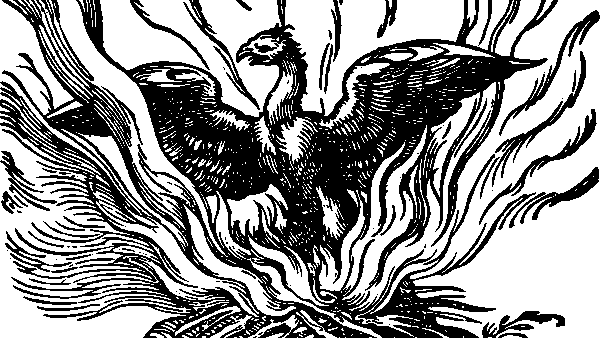Tolstoy famously wrote that “All happy families are alike”, but John Philip Riffice’s novel Dog and Butterfly proves that all good rules also have their exceptions. It’s a novel about a family that is, in general, very happy. The love between Jimmy and his mother and his Uncle Cam is tangible from the first page to the last. And yet it’s a very distinct, interesting family, with a story that’s worth telling.
 I think it’s much harder to write a book like this. Fiction tends to feed on conflict, and as I was reading this book I kept expecting the conflict to appear. When Jimmy’s father died and he and his mother went to live with Uncle Cam, I expected the uncle to be abusive or controlling. When Uncle Cam died and left behind a box of letters, I expected them to reveal a deep, dark secret. But none of that happened.
I think it’s much harder to write a book like this. Fiction tends to feed on conflict, and as I was reading this book I kept expecting the conflict to appear. When Jimmy’s father died and he and his mother went to live with Uncle Cam, I expected the uncle to be abusive or controlling. When Uncle Cam died and left behind a box of letters, I expected them to reveal a deep, dark secret. But none of that happened.
Bad things do happen in the book, of course, like the two deaths I just mentioned. There’s also poverty, and war, and failed romances, but none of it is sufficient to loosen the strong bonds between the main characters.
The conflict in the book is of a subtler kind than I’d expected. It’s largely a conflict of human beings with fate, and the reason it doesn’t seem like much of a conflict is that the happiest characters in the book are the ones who accept their fate rather than fighting against it. Uncle Cam gets injured in World War Two and loses his chance at a great career in American football, on top of losing the woman he loved, but instead of raging against his fate he accepts it, realising that it simply opens up other opportunities, like the chance to bring up his nephew.
Most of us, of course, don’t have Uncle Cam’s attitude. We thrash around and flail against our fate, trying every trick in the book to get what we want. In this sense we are like the dog of the title, chasing after the butterfly because it’s the one thing we can’t ever seem to catch.
The fatalistic philosophy of “Everything happens for a reason” is a strong theme of the book. It’s stated by various characters in slightly different ways, and plays a strong part in the development of the plot, especially the ending.
Frankly I don’t buy this philosophy at all. I think it’s a corruption of simple causality. Everything has a cause, yes, but that doesn’t mean it has a reason. It’s easy to look back and see cause and effect in action and say, “Oh, it had to happen that way.” But it didn’t have to – it just did. It could have happened another way, with different effects.
I suppose it comes down to faith, or lack thereof. Believing that causes are actually reasons implies the existence of a man behind the curtain, directing our fates towards some higher purpose. To me that concept is deeply depressing, because it reduces us to the role of characters in some divine epic novel, but the funny thing is that I’ll bet the last time someone told you everything happens for a reason, they were trying to cheer you up after something really shitty just happened.
Anyway, the good thing is that you don’t have to buy the fatalism to enjoy the book. In good novels, after all, everything does happen for a reason. The novelist arranges his characters and his plot to tell the story he wants. Riffice does a surprisingly good job of weaving a compelling story out of the unpromising materials of happiness and fatalistic acceptance, and so this book ends up being a very satisfying read, whether or not you subscribe to its premise.



There are 6 comments
Nice review, Andrew! It is sad that unhappy novels are more interesting than happy ones, aren’t they 🙂 I think Riffice’s novel is a beautiful novel which makes one think positively and look at life with a lot of affection. Have you heard of the Australian TV series called ‘Packed to the Rafters’? It is about a family and their lives and everyday happenings. Sometimes not-so-good things happen to some of the characters, but they always come out of that thinking positively and conflicts and tricky situations are resolved in a nice way so that everyone is happy (for example if someone robbed a house, the owners of the house didn’t press charges, but got that guy a job and changed him as a person). It was a feel good series overall and I enjoyed watching it for that aspect. Riffice’s novel looks like that. Thanks for sharing your thoughts on this book.
Yes, I think particularly for “serious” books, unhappiness is a much more popular topic! I think sometimes books where people are happy can seem too simple, as if the writer is just trying to make you feel good but not being honest about how life really is. But that wasn’t the case with this book – it felt real, and true to life. The affection in the family was well drawn. Thanks for the comment, Vishy!
I think the word “fate” is tainted with religiosity. I haven’t read the book but Uncle Cam’s attitude doesn’t seem fatalistic to me. He’s realistic and goes with the flow.
For me being a fatalist would imply that he doesn’t take initiatives. That’s something I can’t accept. Thinking that everything is written in advance means you don’t have to make efforts since what must happen will happen without your interference.
Accepting what life throws in your way and make the best of it seems wise. It requires a lot of adaptability and also means that you don’t waste time ranting about what could have been. It’s difficult to do as it’s not our first reflex.
As you said in your post, our first reflex is to fight against it, trying to stick to original plans which obviously need to be rethought.
Interesting review and fascinating questions.
Hi Emma
You know, I hesitated to use the word “fatalistic” for that reason. I meant it as believing that events are predetermined, but it does tend to imply that submissive attitude, and the character is not submissive at all.
I agree, there is a lot of wisdom in that attitude of accepting what life throws in your way and making the best of it. I agree with that part whole-heartedly, and wish I were better at it 😉 It’s the part about things happening for a reason that I don’t accept.
I don’t think I’ve read a lot of family stories tat do without abuse and dysfunctionality, so this sounds appealing.
I’m one of those who thinks everything happens for a reasons, still I don’t think anything is predetermined. Must sound like a contradiction but it’s not in my point of view. Maybe indeed, it’s more like the cause and effect you mention but not exactly. I just don’t belive in chaos, I believe we are too close to see the patterns sometimes.
I’m not making sense, am I?
Hi Caroline,
Don’t worry, you are making sense 🙂 Certainly about being too close to see the patterns – that’s something I agree with. The thing is, I think we sometimes try to see the patterns and get it wrong, and believe something happened for a reason when it didn’t.
Also I don’t see how different people’s reasons intertwine. In the book, Cam cruelly tortures a German soldier while drunk and leaves him to die in pain. From Cam’s point of view, it happened for a reason – the regret made him sober up and live life more purposefully after that. But what was the reason from the German soldier’s point of view? Or from the soldier’s parents point of view? To tell them he had to die a painful, lonely death so that a guy in Oklahoma could quit drinking seems quite rough. Maybe they have their own reasons in their own lives, but it’s quite a lot to tie together.
I’m not trying to contradict you – I have no special insight, and could be wrong. That’s just the struggle I have with everything being for a reason. Would love to hear your take. Thanks for commenting 🙂